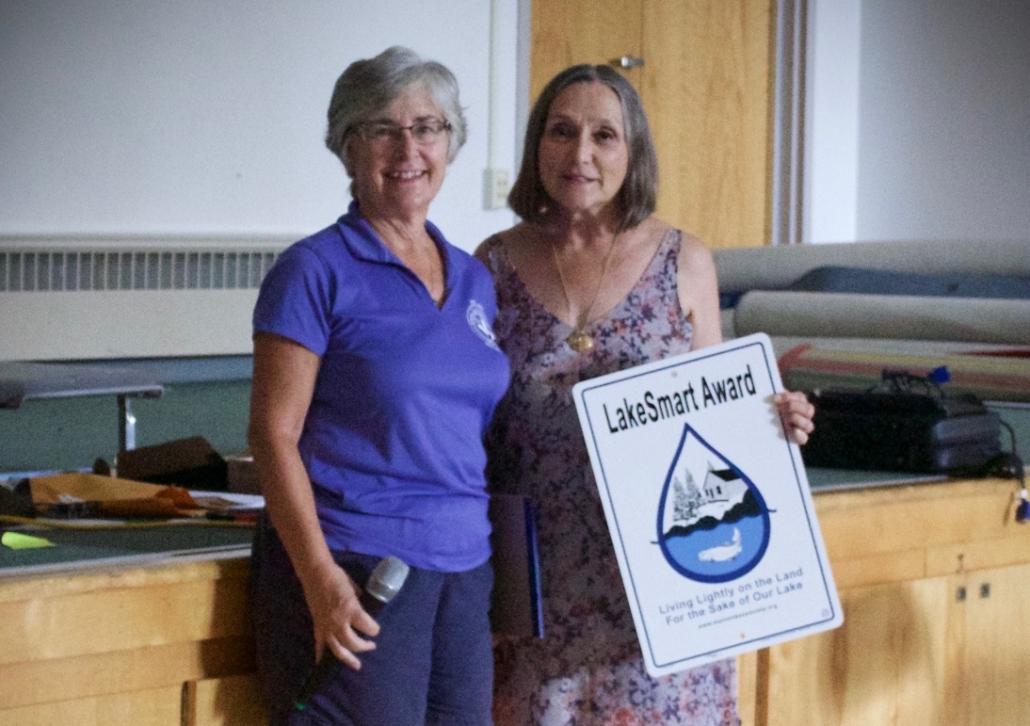
(photo credit: Erskine Academy)
Grade 12
High Honors: Molly Babson, Gavin Blanchard, Madison Boynton, Jenna Butler, Joseph Clark, Dominic Durant, Cameron Falla, Phillip Gilbert, Sage Hapgood-Belanger, Samantha Heath, Eleanor Hodgkin, Kayla Hodgkins, Amber Rose Holmes, Andrew Jackson, Antonio Jacobs, Christopher Jamison, Kyli Julia, Robert King, Morgaine Kmen, Olivia Kunesh, Caitlin Labbe, Noah Labbe, Milo Lani-Caputo, Rivers Malcolm, Tara Maltese, Desiree Mayo, Myles Nored, Jacob Praul, Seth Reed, Austin Roderick, Christina Roy, Hunter Rushing, Seth Savage, Jessie Sepulvado, Conor Skehan, Katherine Smith, Braden Soule, Elizabeth Sugg, Willow Throckmorton-Hansford, Jack Tobey, Kassidy Wade, Hagen Wallace, Jacob Wright, Alana York and Peilin Yu.
Honors: Samantha Allen, Dominque Andrews, Brenna Audet, Alex Barney, Nina Boudreau, Daniel Bourgoin III, William Bourque, Justin Browne, Arthur Carey, Nicholas Cates, Jonathan Condon, Caitlyn Denico, Damien Doe, Keara Doughty, Travis Dow, Tiffany Doyle, Samuel Falla, Courtney Gallagher, Madeline Geidel, Ashley Gillis, Chad Grant, Dylan Grotton, Lucas Grotton, Regina Harmon, Alexis Haskell, Tristan Hawk, William Jones, Jack Jowett, Garrett Keezer, Dylan Keller, Paige Leary, Conner Leeman, Searra Lord, Alexander Mahon, Mya Maxim, Isaiah Morrison, Conner Paine, Joshua Peaslee, Zachary Plourde, Hannah Reid, Cole Roberts, Caleb Sacks, Shaine Staples, Briana Strout, Mercedes Tibbetts, Megan To, Shay Tripp-Laliberty, Ashlyn Wing and Jiwei Jeff Ye.
Grade 11

High Honors: Jay Austin II, Julia Basham, Haley Breton, Abigail Cordts, Cheyann Field, Jada Fredette, Alyssha Gil, Annika Gil, Joshua Gower, Alyssa Hale, Emma Harvey, Keimi Henry, Summer Hotham, Ashley Huntley, Sarah Jarosz, Parker King, Benjamin Lavoie, Eleena Lee, Stephanie Libby, Jordan Linscott, Brandon Loveland, Marissa McGraw, Jakob Mills, Adalaide Morris, Lyndsie Pelotte, Hunter Praul, Miina Raag-Schmidt, Benjamin Reed, Mitchel Reynolds, Andrew Robinson, Alyssa Savage, Taylor Shute, Dominic Smith, Alisha Stevens, Jacob Sutter, Hailee Turner, Cameron Tyler and Richard Winn.
Honors: Alec Baker, Derek Beaulieu, Adam Bonenfant, Ashlee Bossie, Yanic Boulet, Kole-Tai Carlezon, Jacob Cater, David Chubbuck Jr, Summer Curran, Colby Cyr, Devin Davis, Dominic Denico, Joshua Donahue II, Joshua Duggan, Dominick Dyer, Vincent Emery, Mitchell Gamage, Boe Glidden, Bryce Goff, Tori Grasse, Gage Henderson, Nicholas Howard, Julianna Hubbard, Emily Jacques, Cameron Johnson, Colby Johnson, Luke Jordan, Tristan Klemanski, Brandon LaChance, Benjamin Lagasse, Cole Leclerc, William Leeman, Desiree Leighton, Sydney Lord, Haymanot Maynard, Reece McGlew, Kaytie Millay, Grady Miller, Krysta Morris, Nathaniel Mosher, Chandler Peele, Matthew Picher, Dalton Pushard, Jennifer Reny, Dominic Rodrigue, Michael Rogers, Shawn Seigars, Serena Sepulvado, Santasia Sevigny, Nicholas Shelton, Alissa Sleeper, Kayla Sleeper, Lily Solorzano, MaKenzi Strout, Nicole Taylor, Courtney Tibbetts, Brandon Tibbs and Katelyn Tibbs.
Grade 10
High Honors: Philip Allen, Abbygail Blair, Jane Blanchard, Samantha Box, Trevor Brockway, Eleanor Brown, Zoe Butler, Joleigh Crockett, Cody Devaney, Jacob Devaney, Abigail Dumas, Amelia Evans, Addison Gamage, Margaret Gamage, Patrick Hanley, Avery Henningsen, Nathan Howell, Emma Hutchinson, Muzzammil Iqbal, Delaney Ireland, Bryan Joslyn Jr, Madyx Kennedy, Sierra LaCroix, Isabela Libby, Colby Lloyd, Emily Lowther, Chiara Mahoney, Michael Nicholas III, Ian Oliphant, Brian Ouellette, Aiden Pettengill, Sydni Plummer, Harry Rabideau, Kristin Ray, Hanna Spitzer and Kelby Young.
Honors: Mara Adams, Nicholas Barber, Kylie Bechard, Rylee Bellemare, Isabella Bishop, Everett Blair, Johnathan Blair, Christopher Bourdon, Anthony Chessa, Saydi Cote, Katelynn Dubriel, Jake Emond, Phillips Gidney, Hailey Haskell, Braydon Hinds, Paeshance-Rae Horan, Keith Knowles, Kaylah Kronillis, Haley Laird, Joanna Linscott, Eva Malcolm, Jonathan Martinez, Hailey Mayo, Gavin Mills, Tyler Ormonde, Olive Padgett, Daniel Page, Courtney Paine, Isabella Parlin, Annaliese Patterson, Allison Roddy, Hailey Sanborn, Acadia Senkbeil, Paul Slimm, Carly Spencer, Joshua Tobey, Mollie Wilson, Dylan Wing and Samuel York.
Grade 9
High Honors: Isaac Baker, Julia Barber, Alana Beggs, Jacob Bentley, Jack Blais, Wyatt Brann, Lilian Bray, Evan Butler, Emily Clark, Tabitha Craig, Liberty Crockett, Colby Cunningham, Isabella DeRose, Luke Desmond, Emma Fortin, Samantha Golden, Trace Harris, Hayden Hoague, Grace Hodgkin, Rachel Huntoon, Emma Jefferson, Grace Kelso, Taidhgin Kimball, Aidan Larrabee, Lili Lefebvre, Isavel Lux Soc, David Martinez – Gosselin, Hayden McMurtry, Adam Ochs, Abigail Peaslee, Devon Polley, Sarah Praul, Riley Reitchel, Mackenzie Roderick, Abbey Searles, Shawn Searles, Hannah Soule, Natalie Spearin and Lily Vinci.
Honors: Griffin Anderson, Nickolas Berto, Austin Campbellton, Nathaniel Collins, Jasmine Crommett, Daniel Cseak, Caleb Cyr, Tiana Dingwell, Kaden Doughty, Alexander Drolet, Abigail Dutton, Kelsie Fielder, Jacob Fisher, Chase Folsom, Wyatt French, Jenna Gallant, Josette Gilman, Ciera Hamar, Thomas Hanley, Larissa Haskell, Skye Havey, Hannah Huff, Hunter Johnson, Tanner Klasson, Mallory Landry, Madison Lully, Calvin Mason, Robert McCafferty, Wes McGlew, Ben Monroe, Christian Moon, Rebecca Morton, Brady O’Connor, Lilly Potter, Paige Reed, Parker Reynolds, Kadince Rideout, Natasha Ryder-Lewis, Andrew Shaw, Hugo Smith, Nathaniel Solorzano, Hannah Strout – Gordon, Brennen Wade, Samuel Worthley, Emily York and Hannah York.







 Bar Harbor Bankshares (NYSE American: BHB) announced that its banking subsidiary, Bar Harbor Bank & Trust (“BHBT”), has signed a definitive agreement to acquire eight branches located in central Maine with approximately $287 million of deposits, $111 million of loans and $284 million of assets under management (as of March 31, 2019) from People’s United Bank, National Association (“People’s”.
Bar Harbor Bankshares (NYSE American: BHB) announced that its banking subsidiary, Bar Harbor Bank & Trust (“BHBT”), has signed a definitive agreement to acquire eight branches located in central Maine with approximately $287 million of deposits, $111 million of loans and $284 million of assets under management (as of March 31, 2019) from People’s United Bank, National Association (“People’s”.




 Area students were recently named to the highly selective dean’s list at Colby College, in Waterville, for outstanding academic achievement during the spring semester of the 2018-19 academic year. A total of 443 Colby students – or 23 percent of the qualified student body – earned a spot on the Dean’s List last semester.
Area students were recently named to the highly selective dean’s list at Colby College, in Waterville, for outstanding academic achievement during the spring semester of the 2018-19 academic year. A total of 443 Colby students – or 23 percent of the qualified student body – earned a spot on the Dean’s List last semester.
 China residents or non-resident property or business owners needing a bridge loan to help start or expand a business in China may apply to borrow between $5,000 and $25,000 from the TIF revolving loan fund. After months of discussing a revolving loan fund, TIF Committee members agreed on July 1 to “put it live.” Information and application forms will soon be available on the Town of China website.
China residents or non-resident property or business owners needing a bridge loan to help start or expand a business in China may apply to borrow between $5,000 and $25,000 from the TIF revolving loan fund. After months of discussing a revolving loan fund, TIF Committee members agreed on July 1 to “put it live.” Information and application forms will soon be available on the Town of China website.